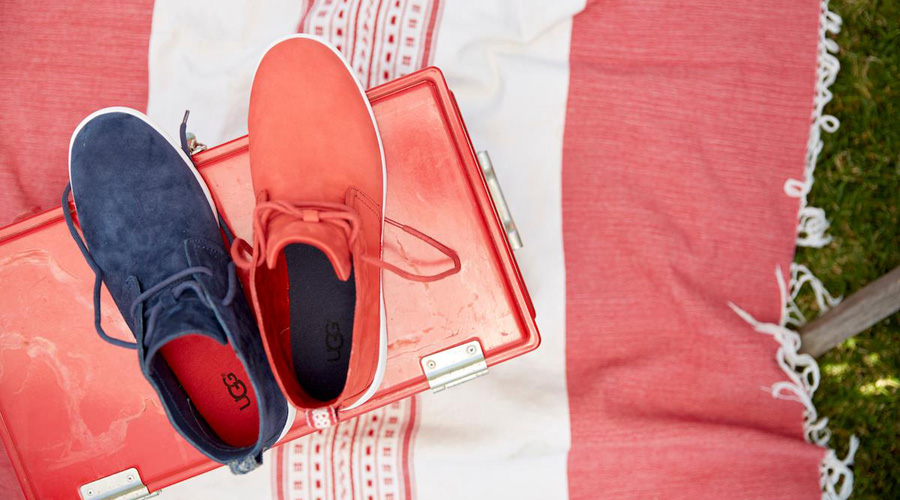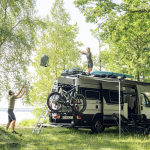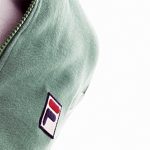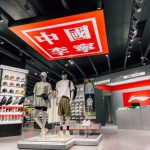By Thomas J. Ryan
Deckers Outdoor Corp. (NYSE:DECK) reported an ugly fiscal-first quarter as its losses widened and sales fell sharply. But at least they were a lot less ugly than expected.
Results were impacted by a timing shift this year due to its ERP implementation that caused some sales to be recorded in Q4 of last year instead of the first quarter, as forewarned when the company reported fourth-quarter results. Some orders also shifted into Q2 this year, in line with the new product launch timing, and further pressure was seen on direct-to-consumer (DTC) retail sales.
Revenue in the quarter exceeded guidance by nearly $5 million, driven by more regular sales and fewer closeout sales in the quarter than expected. And due to that higher-than-expected revenue, improved gross margins and the timing of certain expenses, its net loss came in much better than expected. On Friday in mid-day trading, shares of Deckers were up $1.72 to $65.15.
Most encouragingly, while elevated inventories in the marketplace and generally weak brick & mortar traffic held back the gains, Deckers brands showed momentum in key areas. For Ugg, sandals are particularly taking off. Sport sandal are seeing healthy demand for Teva, the Clifton 3 just launched to a strong response for Hoka One One and the Yoga Sling remains a hot item for Sanuk.
“Fiscal 2017 got off to a solid start,” said Dave Powers, president and CEO, Deckers Brands. Net sales decreased 18.4 percent to $174.4 million.
Ugg
In its Fashion Lifestyle group (Ugg and Koolaburra), Ugg’s sales fell 19.8 percent to $91.9 million. The decline was driven by a shift in the timing of order shipments between quarters which impacted global wholesale and distributor sales, a decrease in DTC comparable sales and fewer close-out sales.
Ugg saw strong demand for its spring and summer collections, especially the sandal category, which grew 70 percent compared to last year. The success caused Ugg to land on the top 10-selling spring and summer footwear brands for many key accounts for the first time ever. Said Powers, “We are building on this momentum with expanded collections and based on initial conversations with wholesalers we feel confident about the brand’s prospect for continued growth next spring.”
For fall/winter, the main focus is on the launch of the Classics franchise, which includes New Classic, Classic Slim, Luxe, Classic Cuff and Classic Street. The New Classic adds water- and stain-resistant treatment as well as improved comfort and traction delivered by its TreadLite outsole. Added Powers, “We are pleased with the reads from our initial launch and are excited as we prepare for this key selling season when the bulk of the marketing and PR will hit to drive brand heat at the most important time of the year.”
In men’s, a new, humorous campaign starring Tom Brady that will encourage men to “do nothing” in their downtime is being launched to support Ugg’s slippers and loungewear businesses.
Koolaburra by Ugg will launch this fall with 12 styles at price points ranging from $39 to $90. The brand will be available at retailers such as Kohl’s and Shoe Carnival. Stated Powers, “We are excited to see how consumers react to the product, which will help us assess the long-term market opportunity for this brand.”
Hoka One One
In the Performance Lifestyle group (Hoka, Teva and Sanuk), Hoka’s sales grew only 1.8 percent following double-digit growth the last several quarters. The slower growth in Q1 was expected as the newest iteration of the Clifton, the brand’s top-selling shoe, was launched in July instead of June like last year. Added Powers, “The early results for the Clifton 3 are surpassing the Clifton 2, a great sign for health of this burgeoning franchise.”
The Clayton also earned Editor’s Choice from Runner’s World. Stated Powers, “The success of our recent launches gives us added confidence in our product pipeline and our ability to further grow market share in the run specialty channel.”
Hoka will have two athletes supporting the brand at the Rio Olympics and is an official sponsor at the Kona Ironman US Championships.
Combined net sales of Deckers Other Brands, which include Hoka, decreased 11.6 percent in the quarter to $21.1 million, primarily attributable to discontinued brands. In February, Deckers announced it was closing the Ahnu office outside San Francisco as it sought strategic alternatives for that brand.
Teva
Teva’s sales were down 17.3 percent in the quarter to $34.7 million. The drop reflected challenges booking closeout sales caused by the EPS implementation and also marketplace challenges from higher footwear inventories in the channel, which impacted the spring re-order business. Sales still came in better than expected due to gains across Teva’s sport sandal category. High-profile collaborations, such as one with Derek Lam that sold at Athleta, are helping the brand boost average selling prices. In the back half of the year, the Arrowood collection of sneaker boots will be launched at Dillard’s, Zappos and on Teva.com.
Sanuk
Sanuk’s were sales slumped 20.2 percent to $26.7 million, which was in line with internal expectations, as the brand was similarly impacted by elevated inventories in the marketplace. Continued success was seen with its Yoga Sling collection, whichincluded new higher-priced premium styles as well this year. The brand also saw a “great response” to men’s casual styles.
Sanuk has completed its transition from Irvine, CA to Decker’s corporate headquarters up north in Goleta. Magnus Wedhammar, formerly SVP of product at Sperry with experience at Converse and Nike, was also just hired as its general manager. Said Powers, “We look forward to Magnus’s impact on repositioning the brand and developing new product and marketing to reignite sales.”
Companywide Numbers
Companywide wholesale and distributor net sales for the quarter fell 24.3 percent to $116.1 million due to the order timing issues and fewer close-outs. Powers said he is “encouraged by the changes” made by Stefano Caroti, who was appointed omni-channel president last October. Deckers also hired Tracy Paoletti, former VP of sales at Asics, as VP of sales for Ugg.
DTC sales were off 3.6 percent to $58.3 million with same-store sales decreasing 7.3 percent. Powers said that like many other retailers, Ugg’s brick-and-mortar locations continue to be challenged by weak traffic, especially in the U.S. The continued promotion of Classics to make way for the new Classic lineup also contributed to the negative comp. As part of its retail optimization efforts, Ugg closed six stores during the quarter of the approximately 21 targeted for closured during fiscal 2017.
Domestic sales slumped 18.6 percent to $109.5 million while international net sales were down 18.2 percent, to $64.9 million. The net loss widened to $52.3 million, or $1.84 a share, from $46.0 million, or $1.43, a year ago. The loss was expected to be in the range of $2.10 to $2.20 that had been expected. The company typically shows a loss in the first two quarters with the majority of Ugg’s sales occurring in the second half.
Besides the above-plan sales, the bottom line was helped by an improvement in its gross margins rate to 43.7 percent from 40.5 percent. The lift was slightly better than expected with the overall improvement traced to a lower proportion of closeout sales, a higher proportion of sales from DTC and improved international margins.
SG&A expenses rose $4 million to $155 million due to higher fixed costs from additional retail stores and higher depreciation related to its ERP implementation. But the increase was less than expected, primarily as a result of a delay in marketing spending to the third quarter. As a percentage of sales, SG&A expenses was 88.6 percent compared to 70.3 percent for the same period last year.
Looking ahead, Deckers continues to expect sales for the current fiscal year to be in the range of down 3 percent growth to flat. Earnings are also still expected in the range of $4.05 to $4.40. This excludes any pretax charges that may occur from any further restructuring charges, which are expected to be in the range of $10 to $15 million in fiscal year 2017.
For its current second quarter, sales are projected to be up 1 to 3 percent. EPS is expected to improve to a range of $1.12 to $1.22, which compares to $1.11 for the same period last year. With the majority of its sales in the second half, Deckers said the majority of its earnings increase in fiscal 2017 will come in the third and fourth quarters.
Lead photo courtesy Ugg/Deckers Outdoor Corp.
















